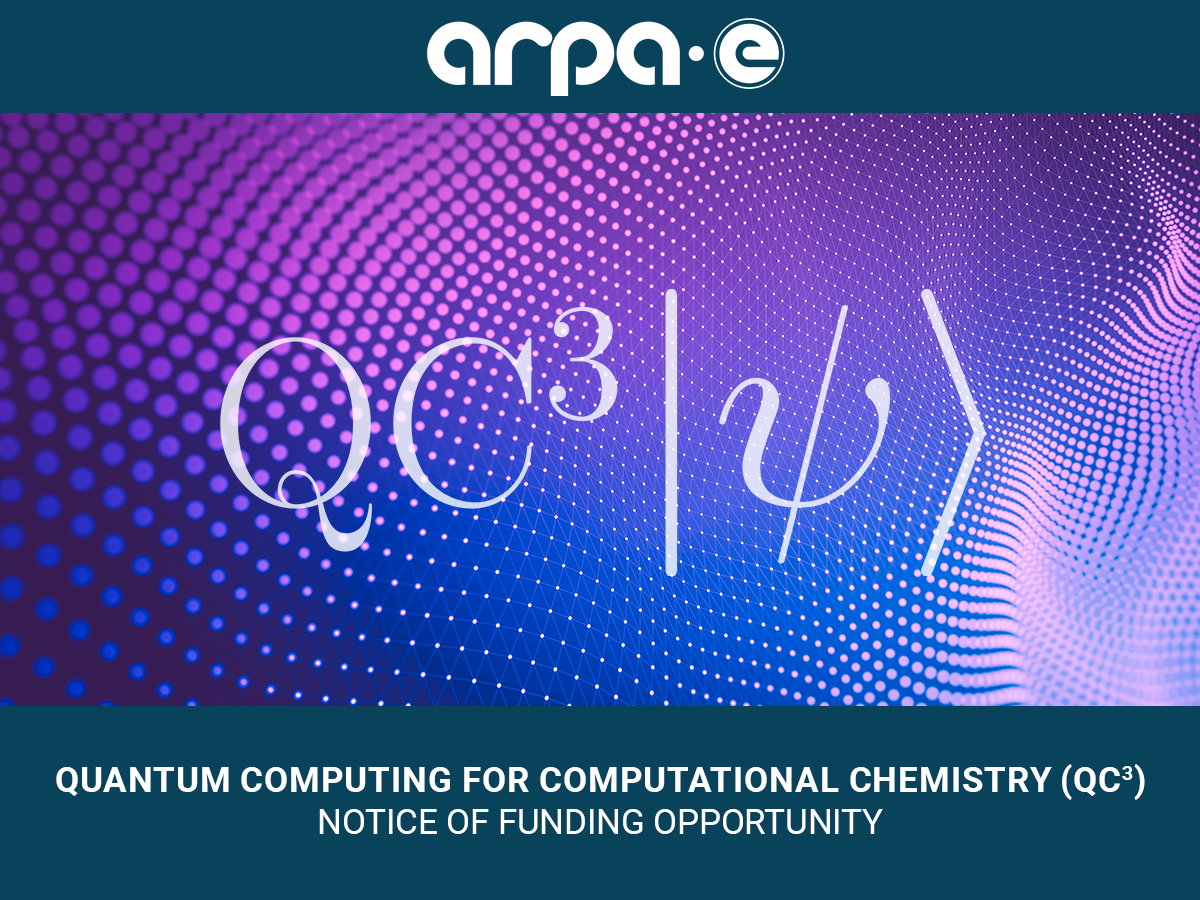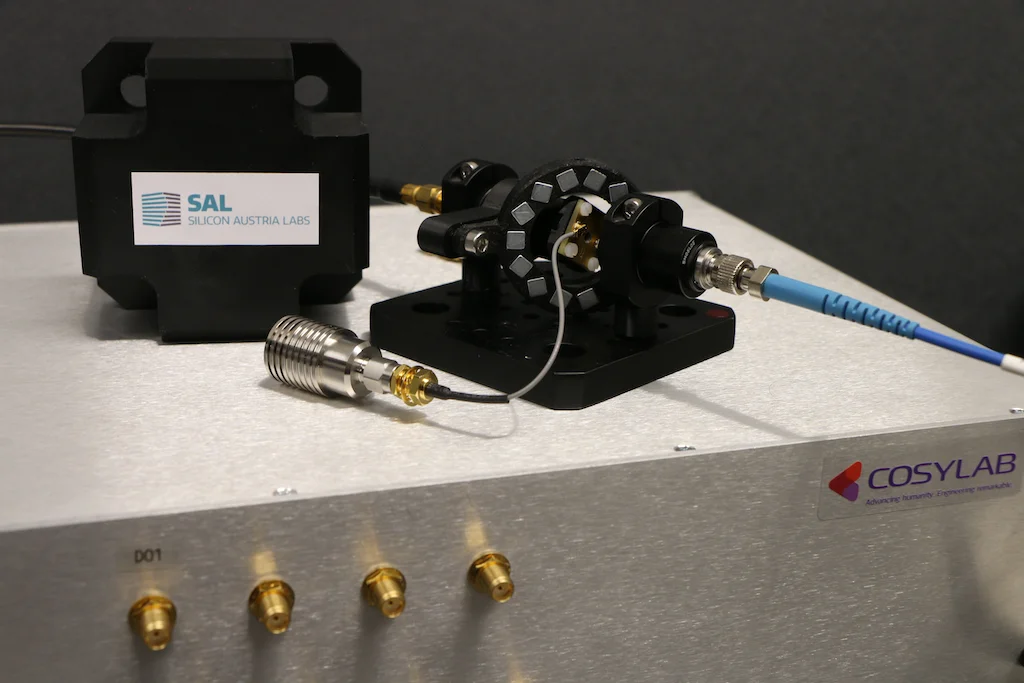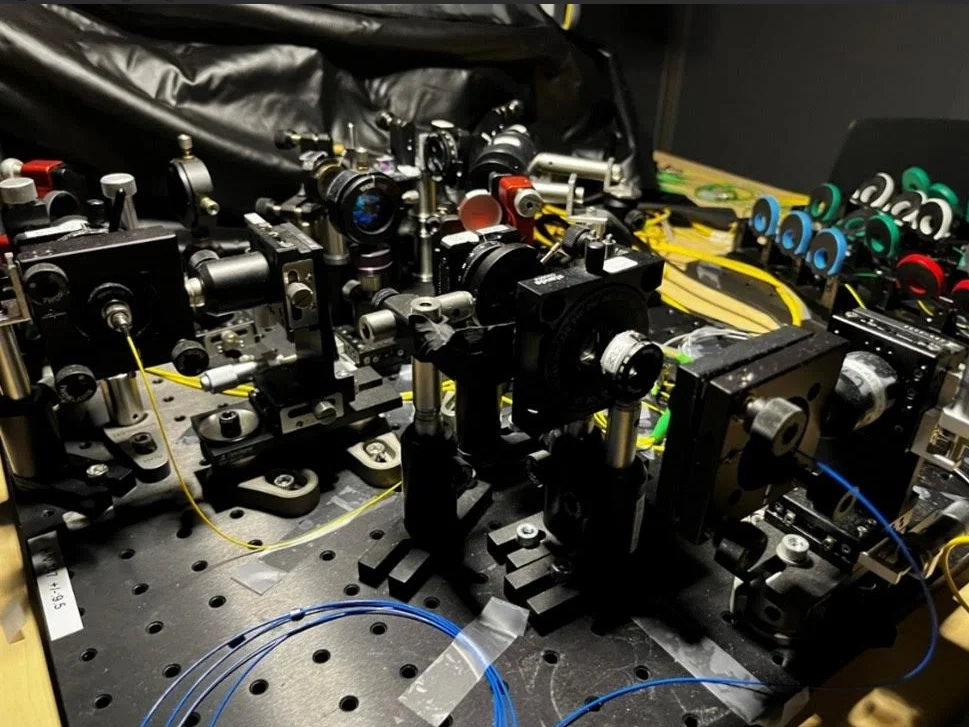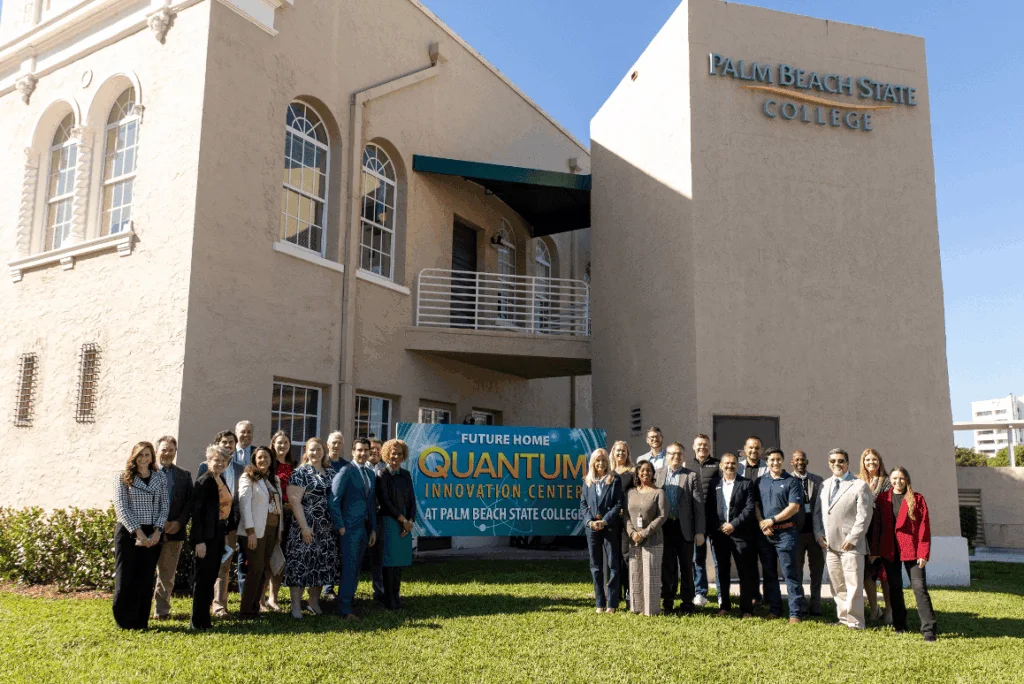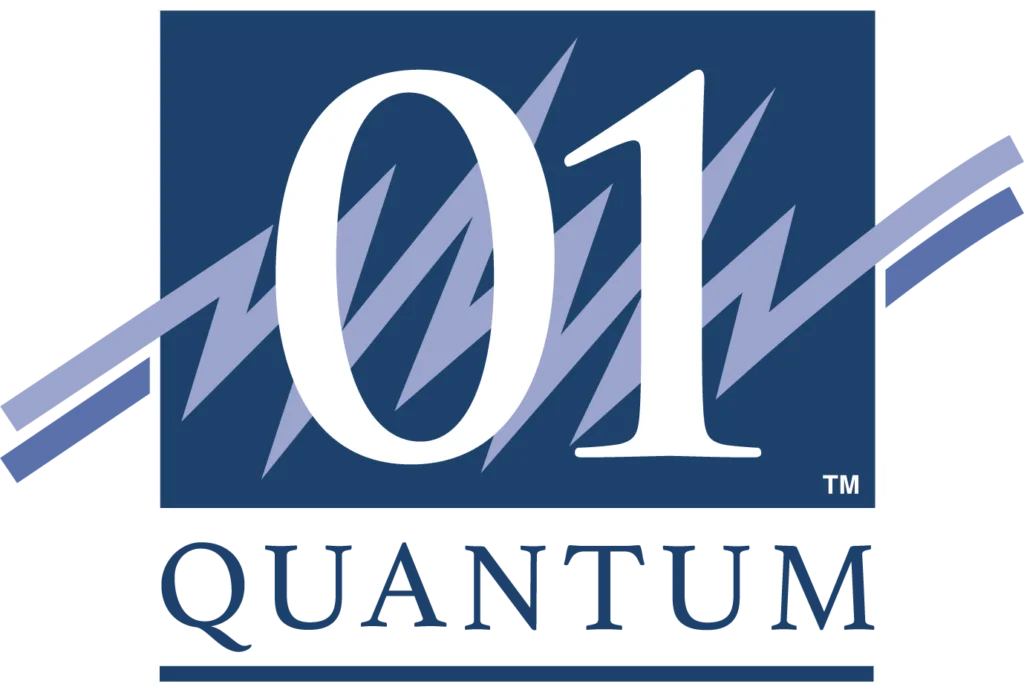Insider Brief
- ARPA-E announced the QC3 program, which funds quantum computing projects aimed at revolutionizing energy research, such as developing sustainable industrial catalysts and new battery chemistries.
- The program seeks to overcome the limitations of classical computing by leveraging quantum algorithms to solve complex chemistry and materials science problems, with the goal of achieving a 100x improvement over classical methods.
- QC3 projects will focus on high-impact energy solutions and aim to reduce greenhouse gas emissions, advancing ARPA-E’s mission to lead innovation in energy technologies.
PRESS RELEASE — The U.S. Department of Energy Advanced Research Projects Agency-Energy (ARPA-E) today announced funding to pioneer a new approach to studying chemistry and materials. The Quantum Computing for Computational Chemistry (QC3) program aims to develop quantum algorithms to revolutionize diverse areas of energy research, such as designing new and sustainable industrial catalysts, discovering new superconductors for more efficient electricity transmission, and developing improved battery chemistries.
“Computer simulations of chemistry and materials drive energy R&D, but classical computing has limits on the complexity it can replicate,” said ARPA-E Director Evelyn N. Wang. “QC3 projects will harness the power of quantum computing to exceed those limits and provide researchers with the tools to solve high-impact problems in energy.”
The QC3 program strives to advance ARPA-E’s mission by developing, optimizing, and co-designing quantum solutions to some of the most urgent challenges in energy. Each project team will identify a specific problem in chemistry or materials science where a quantum solution, if scalable and generalizable, can lead to significant energy impact or reduction in greenhouse gas emissions. These quantum simulations will achieve breakthrough performance through software optimization across the computational “stack” of applications, software, and hardware. Each project team must achieve a 100x improvement over classical methods or show a scalable approach to doing so and be validated on available quantum computer hardware.

Visit the ARPA-E eXCHANGE website for more information about QC3, including key guidelines, and read the QC3 program description.
ARPA-E advances high-potential, high-impact energy technologies across a wide range of technical areas that are too early for private-sector investment. Learn more about these efforts and ARPA-E’s commitment to ensuring the United States continues to lead the world in developing and deploying advanced energy technologies.

